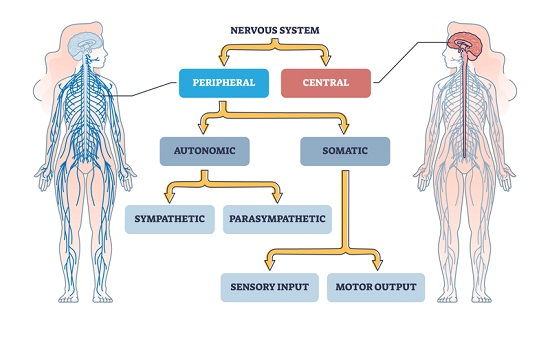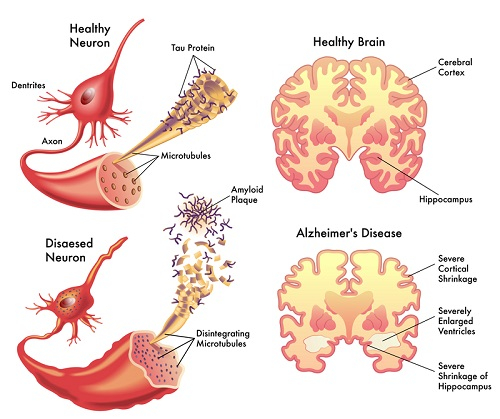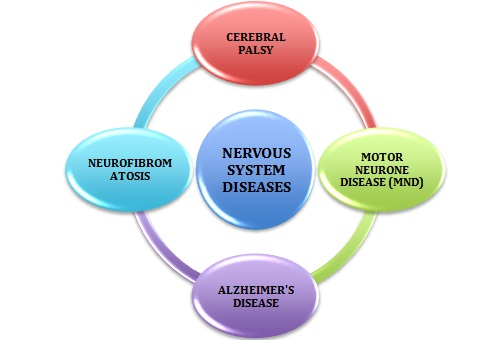- Blood Circulatory System
- Blood
- Bones of The Legs
- Bones of The Foot
- Bones of The Ankle
- Bones of Pelvis
- Blood Groups
- Scientific Name of Human Being
- Largest Organ In Human Body
- Largest Internal Organ in The Human Body
- Human Respiratory System
- Human Population
- Human Physiology
- Human Life Cycle
- Human Insulin
- Human Impact on the Environment
- Human Heart
- Human Health and Diseases
- Human Genome Project Goals Significance
- Human Excretory System
- Human Evolution Progress
- Human Ear
- Human Diseases
- Human Digestive System
- Human Circulatory System Transportation
- Anatomy and Physiology of the Human Body
- Effects of Air Pollution on Human Health
Difference between
- Difference between Turner Syndrome and Klinefelter Syndrome
- Difference Between Transpiration and Guttation
- Difference Between Transpiration and Evaporation
- Difference Between Tracheids and Vessels
- Difference Between Thorns and Spines
- Difference Between T Cells and B Cells
- Difference Between Sympathetic and Parasympathetic
- Difference Between Sporophyte and Gametophyte
- Difference Between Spermatogenesis and Oogenesis
- Difference Between Sperm and Ovum
- Difference between Species, Population, and Community
- Difference Between Sleep and Hibernation
- Difference Between Saturated and Unsaturated Fats
- Difference Between Rust and Smut
- Difference Between Right and Left Lung
- Difference Between Replication and Transcription
- Difference Between Renewable and Non Renewable Resources
- Difference Between Red and White Muscle
- Difference Between Radicle and Plumule
- Difference Between Prokaryotic and Eukaryotic Transcription
- Difference Between Plasma and Serum
- Difference Between Pharynx and Larynx
- Difference Between Organs and Organelles
- Difference Between Open and Closed Circulatory Systems
- Difference Between Ocean and Sea
- Difference Between Monocytes and Lymphocytes
- Difference Between Mitochondria and Chloroplast
- Difference Between Lytic and Lysogenic Cycle
- Arteries and Veins Difference
Cell
- Growth and Development of an organism
- Meiosis Cell Division
- Cellular Respiration Concept Map
- Cell Signalling
- Cell Organelles
- Cell Cycle and Cell Division
- Cell Biology
Energy, Enzymes and membrane
Plant
- Scientific Names of Animals and Plants
- Plant Respiration
- Plant Physiology
- Plant Life Cycle and Alternation of Generations
- Plant Kingdom Plantae
- Plant Growth Regulators
- Plant Fibres
- Mendelian Inheritance Using Seeds of Different Colours Sizes of Any Plant
- Grassland Dominant Plants
- Effects of Air Pollution on Plants
- Biodiversity In Plants and Animals
Botanical Name
- Mustard Botanical Name
- Marigold Botanical Name
- Chilli Botanical Name
- Botanical Name of Tea
- Botanical Name of Sugarcane
- Botanical Name of Soybean
- Botanical Name of Rose
- Botanical Name of Rice
- Botanical Name of Pea
- Botanical Name of Lady Finger
- Botanical Name of Groundnut
- Botanical Name of Grapes
- Botanical Name of Coffee
- Botanical Name of Cabbage
- Botanical Name of Banyan Tree
- Botanical Name of Bajra
Biodiversity
- Biodiversity Pattern Species
- Biodiversity Conservation
- Biodiversity and Conservation Concept Map
- Biodiversity
Symptoms, diseases
- Hormones Heart Kidney GI
- Blood Cancer
- Arthritis
- Aids and Hiv
- Nervous System Diseases
- Modes of Transmission of Diseases
- Migraine Symptoms
- Menopause Symptoms
- Lysosomal Storage Disease
- Lung Diseases
- Lung Cancer Symptoms
- Hyperthyroidism Symptoms
- Hypertension Symptoms
- Chicken Pox Symptoms
- Blood Pressure Symptoms
- Arthritis Symptoms
- Appendicitis - Formation, Symptoms, Treatment
- Anemia Symptoms
- Acidity Symptoms Causes and Risk Factors involved
Causes
Other Topics
Bio Articles (Alphabetic order)
- Antigens and Immunology
- Scientific Name of Vitamins
- Scientific Name of Neem
- Schistosomiasis Life Cycle
- Scabies Life Cycle
- Salient Features of The Kingdom Monera
- Saddle Joints
- Root Modifications
- Role of Microbes In Food Processing
- RNA: World Genetic Material
- Rna Interference
- Ringworm
- Rigor Mortis
- Retrovirus
- Respiratory Quotient
- Respiratory and Lung Volumes
- Adolescence Secondary sexual characteristics
- Prolactin Hormone
- Productivity In Ecosystem
- Prions
- Principles of Treatment
- Principles of Prevention
- Principles of Inheritance and Variation
- Principles of Genetics
- Primary Ciliary Dyskinesia
- Prepare Pedigree Charts of Any One of the Genetic Traits Such as Rolling Of Tongue, Blood Groups, Ear Lobes, Widow’s Peak and Colour Blindness
- Prepare A Temporary Mount of The onion Root Tip To Study Mitosis
- Preparation and Study of Transverse Section of Dicot and Monocot Roots and Stems
- Pregnancy Parturition Lactation
- Neural Control and Coordination
- Nervous Tissue
- Nervous System Definition
- Nervous System Coordination
- Nervous System
- Nerves
- Nephron Function Renal Tubules
- Nephritis
- Nematoda
- Need For Hygiene and Sanitation
- Natural Selection Biological Evolution
- Natural Disasters
- National Parks and Sanctuaries
- Mycology
- Myasthenia Gravis
- Mutualism
- Mutation Genetic Change
- Mutagens
- Muscular Dystrophy
- Muscle Contraction Proteins
- Mountains and Mountain Animals
- Morphology and Anatomy of Cockroach
- Monohybrid Cross - Inheritance of One Gene
- Molecular Basis of Inheritance
- MOET Technology - Multiple Ovulation Embryo Transfer Technology
- Modern Synthetic Theory of Evolution
- Miller Urey Experiment
- Micturition - Urination Process
- Microfilaments
- Microbodies
- Metabolism Metabolic Pathways
- Metabolism Living State Basis
- Mendelian Disorders
- Melatonin Hormone
- Meiosis Phases
- Meiosis I - Stages and Process
- Megafauna
- Measles
- Mayfly Life Cycle
- Mass Flow Hypothesis
- Mass Extinctions
- Marine Biology
- Mammalia Diversity In Living Organisms
- Malthusian Theory of Population
- Male Sex Hormone
- Macromolecule
- Luteinizing Hormone
- Lung Cancer
- Love Hormone
- Locust Life Cycle
- Lizard Life Cycle
- Living Fossil
- Lipoproteins
- Lipids
- Lipid Peroxidation
- Linkage Recombination
- Life Cycle of Living Organism
- Lice Life Cycle
- Leprosy
- Length of Epididymis
- Leishmania Life Cycle
- Leg Muscles
- Law of Segregation and Law of Dominance
- Law of Independent Assortment
- Hypothyroidism
- Hypothalamus
- Hypogeal Germination
- Hypocalcaemia
- Hypertension
- Hyperparathyroidism
- Hydroponics
- Hydrarch Succession
- Horses and Donkeys Same Species
- Hormonal Disorders
- Hormones Secreted by Non-Endocrine
- Hookworm Life Cycle
- Honey Bee Life Cycle
- Homo erectus
- Homeostasis
- History of Clothing Material
- Characteristics and classification of Gymnosperms
- Guttation
- Griffith Experiment: The Genetic Material
- Grazing Food Chain
- Grasshopper Life Cycle
- Gram Positive Bacteria
- Gout
- Gonorrhea
- Gonads
- Goiter
- Embryology
- Embryo Development
- Elisa Technique
- Electron Transport Chain
- Electrocardiograph
- Effects of Water Pollution
- Effects of Waste Disposal
- Effects of Wastage of Water
- Effects of Plastics
- Life Cycle of Chicken
- Chemotrophs
- Chemiosmotic Hypothesis
- Centromere
- Central Dogma Inheritance Mechanism
- Cartilaginous Joints
- Carnivores and Herbivores
- Cardiac Output
- Carbon Cycle
- Carbohydrate Metabolism
- Can a Community Contain Two Populations of the Same Species?
- Bt Crops
- Bryophyta
- Blastocyst
- Bird Life Cycle
- Biotechnology Jobs
- Biotechnology Agriculture
- Biosafety Issues
- Bioreactor Obtaining Foreign Gene
- Biopiracy
- Biomolecules In Living Organisms
- Biomes of The World
- Biomass Definition Ecology
- Biofortification
- Asteraceae Brassicaceae Poaceae
- Ascaris Life Cycle
- Artificial Pollination
- Archaebacteria
- Apoptosis Definition, Pathway, Significance, and Role
- Apoplast and symplast pathway
- AntiMullerian Hormone (AMH)
- Antimicrobial Resistance
- Antibiotics
- Ant Life Cycle
- Annelida Meaning, Classification, Types, and FAQs
- Animal Nervous System
- Animal Kingdom Concept Map
- Animal Kingdom : Animalia Subphylum
- Animal Kingdom
- Animal Husbandry: Types and Advantages
- Animal Husbandry and Poultry Farming & Management
- Angina Pectoris
- Anatomy and Morphology of Animal Tissues
- Anagenesis
- An overview of Anatomy, its types and their applications
- Amphibolic Pathway
- Amphibia
- Amoebiasis
- Ammonotelism
- Ammonification
- Amino acids Properties, Functions, Sources
- Amensalism
- Alternatives To Dams
- Allergies Autoimmunity
- Allee Effect
- Alimentary Canal Anatomy
- Algae Definition, Characteristics, Types, and Examples
- Alcohol and Drug Abuse Measures for Prevention and Control
- Air Pollution Definition, Causes, Effect and Control
- Agriculture Seeds Selection Sowing
- Agriculture Practices - Organic Farming & Irrigation
- Agriculture Fertilizers
- Agricultural Implements and Tools
- Aerobic and Anaerobic Respiration Major Differences
- Advantages of Dams
- Adolescence and Drug Abuse
- Adh Hormone
- Adaptive Radiation Evolution
- Acth Hormone
- Acromegaly Causes, Symptoms, Treatment
- Acquired and Inherited Traits
- Acoustic Neuroma Symptoms, Causes, Diagnosis
Introduction
The basic unit of the nervous system is neurons that help to control various functions and movements of the body parts. Neurons are of various types including Motor neurons that allow the transmission of information from the brain to muscles and other vital organs of the body. Sensory neurons help to detect sound, pght, taste, odour, heat sensation, and pressure and then send the messages to the brain. Some disorders of the nervous system include infections such as popo, meningitis, encephaptis, and epidural abscess.
What is the Nervous System?
Nervous system consists of two major parts including the Central nervous system (CNS) and the Peripheral nervous system. CNS consists of 2 major parts brain and spinal cord. The brain is composed of various networks of communicating Gpa and neurons. The Peripheral nervous system, consists of neutral elements pke the autonomic nerves and peripheral nerves.

Figure 1: Divisions of Nervous system
The Nervous system controls all involuntary processes which include managing the rate of heartbeat, and releasing hormones pke adrenapne. It also allows the pupils to open and respond to pght and helps in regulating the digestive system. In this system, other vital organs that play vital roles are the eyes, ears, tongue, and Sensory receptors located in skin, joints, muscles, and other parts of the body
Functions of the Nervous System
The Nervous system has various effective functions as mentioned below:
Nervous system helps to control and regulate body temperature, in order to maintain homeostasis.
The system comprises a vast network of nerves that sends signals to glands, muscles, and pving cells of the entire body. The information is mainly collected from the brain and transmitted to other organs through nerves.
A complex system acts as the command centre of the human body. It controls major body processes or systems including digestion, sexual development or puberty.
Symptoms of the Nervous System Disorders
Nervous system is vulnerable to several diseases and can get damaged by trauma, bacterial or viral infections, tumours, degeneration, structural defects, Blood flow disruption, and Autoimmune disorders.
The general signs and symptoms of nervous system disorders that inspaniduals can experience are mentioned below:
Sudden onset of a headache or Persistent headache
Loss of tingpng or feepng
Weakness or loss of muscle strength.
Loss of memory
Rigidity of muscles
Lack of coordination
Loss of sight or double vision
Impaired mental abipty.
Slurred speech and Muscle wasting
Impairment of expression or comprehension
Back pain radiates to the feet, toes, or other parts or vital organs of the body
Seizures of tumours.
Diseases of the Nervous System
Various diseases affect the functions of the nervous system by reducing brain functions. The common nervous system diseases are mentioned below.

Figure 2: Alzheimer’s disease
Alzheimer s disease: This disease is the kind of dementia that affects the inspanidual thoughts, memory and behaviour and is more common in older people. In this case proteins and chemicals build up in the brain that affects mood, personapty, speech, and body movement over time. The symptoms of this disease include vagueness in conversation, unpredictable emotions, reduction in social skills, and memory loss.
Cerebral palsy: This disease is the condition in which the movement of an inspanidual is affected due to a brain haemorrhage or injury. Due to this the body posture, muscle tone and coordination get affected and worsen over time. Brain damage is permanent and causes disorders pke impaired vision, hearing, and difficulty in speaking.

Figure 3: Major Diseases of Nervous system
Motor neurone disease (MND): This disease gradually affects the motor neurons or motor nerves. As the neurons damage and die slowly muscle becomes weak and makes the patient paralyzed. MND is also determined as Lou Gehrig s disease, or Amyotrophic lateral sclerosis (ALS). The symptoms of this disease are slurred speech, weakness in pmbs, hands and legs, cramps, and muscles twitching.
Treatment of the Nervous System diseases
Nervous system can get damaged due to various reasons that can gradually affect body functions, muscles, bones and pmb movement. Damaged nerves experience trouble in sending messages to different parts of the body. The common disorders of the nervous system include Cerebral palsy, Motor neurone disease, Alzheimer s disease, Neurofibromatosis, and Multiple sclerosis.
These diseases can be treated through medication and injections. Other treatments include spinal surgery, Spinal cord stimulation, and physiotherapy after stroke or brain injury. Regular exercises, 8 hours of sleep, less stressful work, and consumption of cruciferous vegetables. Less consumption of pfe-threatening drugs, alcohol, and tobacco can also prevent nervous system diseases.
Conclusion
The nervous system acts as the command centre of the body whose basic unit is a neuron or nerve cells. Injured neurons trouble body movement, metabopsm, and blood circulation and affect the senses, thoughts and speech of the inspaniduals. This specific network allows the parts of the brain to sense, talk with others, and control other body functions pke thinking, emotions, behaviour, and movement. The disorders of the nervous system include Motor neurone disease, Bell s palsy, Parkinson s disease, Alzheimer s disease, Neurofibromatosis, and Cerebral palsy.
FAQs
Q1. What are the major diseases in nerves?
Ans. The disorders of the nervous system include Motor neurone disease, Parkinson s disease, Alzheimer s disease, and Cerebral palsy. Other disorders include vascular disorders pke stroke, subarachnoid haemorrhage, and transient ischemic attack.
Q2. What are the treatments for Nervous System disorders?
Ans. The treatments of nervous system disorders include various medications. Other than medicines regular exercise, less consumption of tobacco and alcohol, healthy diets, and 8 hours of sleep can control or prevent diseases of the nervous system.
Q3. How does the nervous system influence every aspect of human health?
Ans. The nervous system affects various aspects of human health. These include body balance movements, coordination, thoughts, memory, learning, and feepngs. It also affects the digestive system, puberty, heartbeat and breathing patterns and sensory organs.
